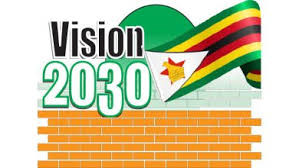
By Tapiwa Gomo There was a time when I was so excited to follow our national budget presentations and economic policies. The reason for that was simple — I wanted to play a part in the development of my country. I thought I could join those who contributed to the national economic development debate.
As time went by, I learnt that to develop a community or a nation is not as complicated as it appears. It is the political context that either facilitates or impedes development. If political interests are larger than those of economically developing a country, the nation suffers. This is where we are today as a nation.
It does not take rocket science to comprehend this. The British took over the pre-colonial land in the southern part of Africa, including modern-day Zimbabwe in the 1890s. They established their own colonial systems to facilitate their business interests for their own comfort.
Their leadership was not so much political but business-minded. They wanted to create wealth and amass power for themselves and their comfort as they settled in Zimbabwe. They used all manner of tactics and available resources to achieve that — including forced labour, pushing local people out of their fertile land and stealing community resources such as livestock. Does that read familiar?
While the colonial story is wholesomely detested and dismissed, there are some vital lessons to draw from how the settlers built their business which led to the establishment of the system and infrastructure we adopted and neglected after independence. Take for an example, if farmers or miners settled in an underdeveloped area, they would pool resources together to build roads, bridges, clinics and schools and bring power and other services to their locations.
So not all the infrastructure we see today was built by the post-independent government. Some of it was built by investors and communities who pooled their resources together to facilitate their business operations. The primary school in my village was also built through the same process by the communities with the government providing books and furniture.
During the colonial period, the settlers established committees drawn from farmers, miners and other ventures to coordinate these efforts. These later turned into local government structures such as rural, city or town councils whose responsibility was to collect contributions in the form of levies and taxes for the management of local affairs. So development — whether social or economic — started from below and not from above as it is understood today.
The central government, which was also largely made up of colonial oligarchs, supported large-scale corporates at all levels by facilitating access to bank loans and new knowledge and technology from external suppliers. They played a political role in the management of national affairs but their interests were to advance policies that would help maximise production, wealth accumulation and economic growth.
- Chamisa under fire over US$120K donation
- Mavhunga puts DeMbare into Chibuku quarterfinals
- Pension funds bet on Cabora Bassa oilfields
- Councils defy govt fire tender directive
Keep Reading
As more and more people moved to towns and cities, the settler leadership understood that economic development is about affective management of available resources by expanding current and bringing in new investment. They were also aware that economic reinvestment yielded new taxes which helped to support access to essential services provided by the central government. They were also clear that economic retention of existing taxes would help mitigate a deterioration in services.
The primary objective of national economic growth was not only limited to improving national gross domestic product, wealth accumulation or making a few individuals rich but to ensure advanced access to services for their people. It was about their comfort and that of their people.
This is how and why countries, towns and cities we see today were established. They started off as someone’s individual or family business – be it supermarket, mining, farming, trading or provision of services. Thriving business projects tend to attract other ventures, leading to growth points. People are attracted by opportunities and eventually residential locations also emerged as people seek employment, economic opportunities or access to services.
Today, the people are looking up to their political leadership to provide explanations and prescriptive policies for addressing the questions of underdevelopment and chronic poverty. With the regression that has occurred over the past two decades, answers are needed not only for the questions of how and why economic stagnation occurred, but also whether the problem can be addressed and how they can be approached.
It is clear that the current leadership is incapable, has never been and will never be. Our problem is very simple to understand. We have a group of people who belong to a party that does not subscribe to the idea of development in all its aspects. Development is about growing the economy to create comfortable conditions for the citizens and not the other way round.
It is a system that knows how to use and abuse power to stay in government positions for nothing other than feeding on national resources. They are different from the colonial administration because the settlers understood that the essence of wealth creation was to create one’s comfort and not just to be rich surrounded by poverty as is the case today. The colonial settlers would fix the roads before buying an expensive car and yet ours do the opposite.
- Tapiwa Gomo is a development consultant based in Pretoria, South Africa. He writes here in his personal capacity.











